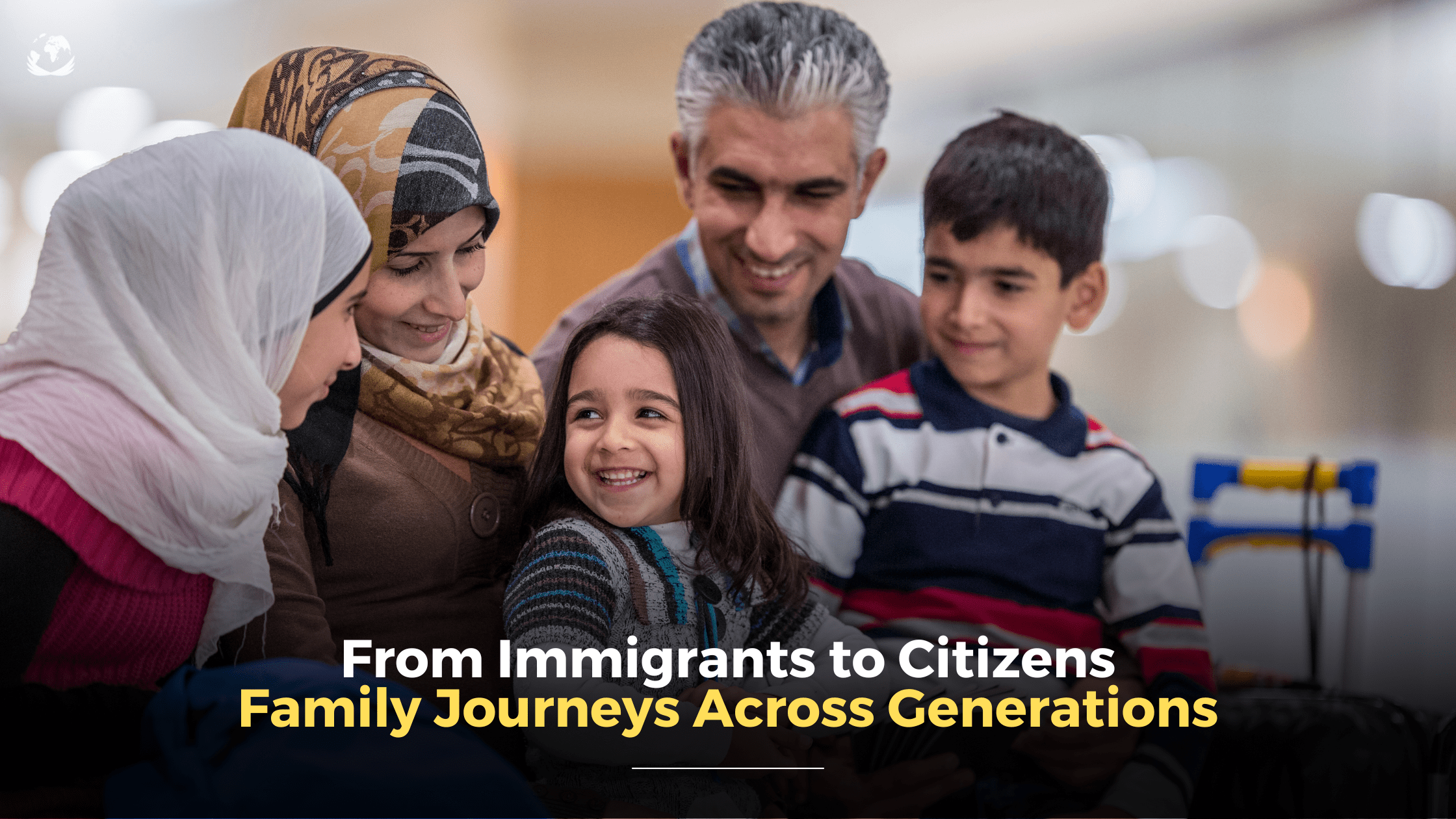From Immigrants to Citizens: Family Journeys Across Generations
Most of the world is struggling with immigration. There are so many immigrant stories, so many kinds of immigrant stories, it minimizes the issue to call it complex. Our larger immigration story is complicated and difficult for the immigrants, who are leaving home, family and friends, and all that is familiar behind. And it is one thing if that immigration is exciting and a choice, let’s say for a new job or an education. But for those for whom immigration is a necessity, it might also be terrifying and heartbreaking and done only when all other choices have faded. Famine, climate change, wars, gang violence, political fears, poverty and disease are the dire circumstances that push people to set off in search of a better or safer life. But everyone knows that when you leave, you may be going from the frying pan to the fire. And most every immigrant story is one of facing adversity in their journey - even if that adversity is just adjusting to a new country and a new language.
In the U.S., unless you are Native American, you have an immigration story. And even most Native Americans were uprooted from their homes by European settlers and so found themselves having to build a life in new surroundings. African Americans have a difficult time finding their immigrant story for a number of reasons related to the institution of slavery. Families were separated, record keeping was spotty and there was a fire in the Commerce Building in 1921 that destroyed the 1890 Census. At any rate, most of us have a story to tell, even if we have not been able to find that story. One way or another, each of us in the U.S. has a legacy of immigration or migration. And, because moving, leaving home, immigrating, all involve significant adjustment and struggle, it is not easy. Most immigrants move to new places out of duress but they are often victimized, derided, seen as invaders, the other, and out for our jobs. Here in the U.S., that view has certainly prevailed. Each new wave of immigrants has run through their own sort of immigrant hazing. They take the low wage jobs, start small businesses - bodegas and bagel shops, tailors and farm work. Slowly, they learn the language, find their footing and they assimilate and offer vitality to their new country. But it is not easy and especially not easy if they don’t look like “us”.
Think of the waves of immigrants to the U.S. This was a country of Native peoples who were invaded by largely Northern European white settlers. Soon, enslaved Africans were brought to build the buildings and work the fields. As the country grew, large numbers of English, French, Germans and Swedes immigrated and assimilated. Irish immigrants came in large numbers in the middle of the 19th Century due to famine. The Irish were widely rejected and met with signs that read “No Irish Need Apply,” or NINA for short. No jobs were available to them where those signs were hung. During industrialization at the turn of the century, large numbers of eastern and southern Europeans came into the U.S. If you read accounts of this era, it is clear how unwelcome these people were, how derided they were and how dangerous they were considered. They lived in slum dwellings and filled our factories with cheap labor. With time, the Irish, Poles, Italians, etc., became our neighbors, our loved ones, our trusted confidants, bankers, politicians and physicians. They were no longer immigrants, but instead became fellow humans. All of these people who chose to immigrate did so for a better life. They fled hunger, religious or political persecution, pogroms. These are the ancestors of those in the U.S. who now call for closing our borders. In rejecting immigrants, we reject our own heritage, our own ancestors and we reject the compassion that was offered to them by this country. Immigrants prosper by our generosity of spirit and in return, immigrants revitalize their new countries. They are driven to survive, to offer better lives to their children and we reap the benefits of that drive.
Sadly, we are currently facing massive immigration waves. Global warming - drought, disease, fires, floods - are leaving masses of people homeless. Hurricane Beryl just this last week left nearly the entire population of 2 islands, Carriacou and Petit Martinique, homeless. Infrastructure is destroyed and the devastation has left no one untouched. Climate Change is affecting people around the world leaving many needing to flee. Wars are also causing thousands to flee for their lives - Ukraine, Myanmar, Sudan, Gaza - to name a few of the regions affected by terror. And all of these people in such dire circumstances are risking their lives further as they attempt to find safe havens in other countries. The world is in a time of reckoning with our current immigration crisis. Do we really need to close our doors? Surely we can find it in our hearts to welcome those in need, as we did, albeit reluctantly, a century ago to our ancestors?
Each of these people affected by the myriad reasons for immigration has a story. Each of these people has an immigration story. The U.S. and now most of Europe is full of stories about immigration and stories of immigrants. History Chip welcomes all immigrants to share their stories. We offer a safe place to tell the world what it is like to be an immigrant, to leave home, to travel to a new place and to try to make a life for yourself and your family. History Chip welcomes your immigrant experience stories, because, your stories matter. The history of our world isn’t complete without documenting these stories of immigration. Share yours here and make them part of history.

